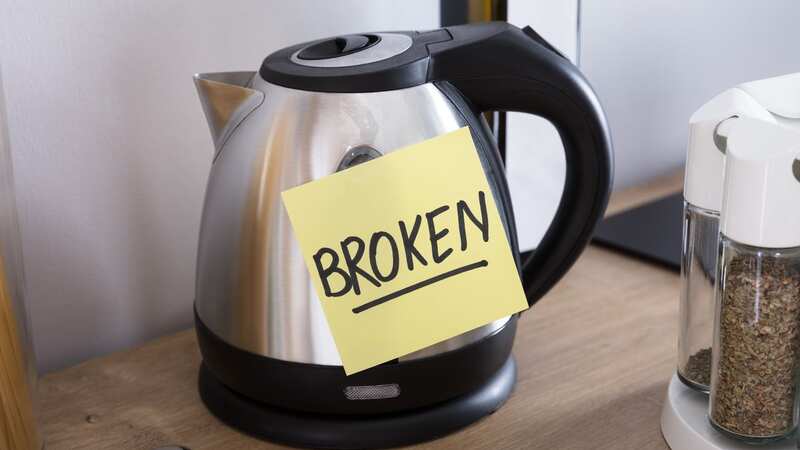Millennials are most willing to try and repair broken electric items themselves

One in five Brits (19%) will simply throw away broken electrical household items, like kettles or toasters, with 36% opting to recycle them – but just 22% would attempt to repair these appliances themselves, to get more use out of them, a study has found.
When it comes to DIY repairs for electrical appliances, millennials emerged as the generation most willing to give this a go – with 72% having successfully followed a YouTube video for help, while nearly half (45%) have visited a repairs café in the last year.
This was followed by three in 10 Gen Z adults, aged 27 or younger, who would try a home repair – while 27% of Gen X, aged 41 to 56, admit they wouldn't trust themselves to do so.
But it emerged that Baby Boomers, aged 55-79, have the least faith in themselves when it comes to trying to prolong the shelf lives of their belongings, according to the research of 2,000 adults.
However, even among those who would not feel comfortable attempting a DIY repair, and would rather discard of broken items, there is a growing trend towards replacing them with second-hand, or pre-loved, products.
 Shop prices 'are yet to peak and will remain high' as inflation hits new heights
Shop prices 'are yet to peak and will remain high' as inflation hits new heights
One in three shoppers say they always look for pre-loved items first, with over of those polled claiming they will spend hours hunting for the best deals on refurbished goods. And of those who do so, 35% say this is more of a habit now than it was five years ago.
More than four in 10 (44%) say that if there is a saving to be made, they will always opt for a used item – and 34% would even gift quality used or refurbished items this Christmas.
 More than a third of shoppers would happily gift a good-quality second-hand, or pre-loved, item this Christmas (SWNS)
More than a third of shoppers would happily gift a good-quality second-hand, or pre-loved, item this Christmas (SWNS)The study was commissioned by Amazon, which has opened a “Second Chance Store” at the Brunswick Centre in central London until December 12, selling returned and repaired items for the festive shopping season.
Sam Littlejohn, head of returns and repairs at the company, said: “Some of the most popular products that people search for on our store, are also available as quality, second-hand items.
“We sold more than four million used and refurbished products online last year, as shoppers recognise their quality and value-for-money, and appreciate they can buy with confidence with us.
“While it’s great to see how, as a nation, we’re putting pre-loved first, if we want to be really thrifty, we should consider repairing items when possible, too. And if you really can’t mend it, Amazon Second Chance can help people find ways to recycle and trade in electronics.”
The study also found 93% check “used” prices against new when shopping online – with 34% refusing to pay full price for anything, be it clothing, tech, or homeware.
Gen Z – those born after 1996 – are the most likely age group to buy pre-loved items, with 44% saying they will always shop second-hand first. In fact, on average, they predict 31% of the clothes they wear, and 33% of the tech they use, are second-hand.
The research also found three in 10 Gen X shoppers – aged between 41 and 56 – look for second-hand deals first. But Baby Boomers, aged 59-77, are the least likely to do so, with just 28% of this generation look for pre-loved items before new.
Savvy spending is the biggest reason all age groups “bargain hunt”, with 87% believing it’s a positive thing to save cash – even if you've got money to burn. And 59% also feel it’s important to buy pre-loved, or to extend a product’s life, for the planet.
 Banksy's artwork has been removed in cities all over the world - see which ones
Banksy's artwork has been removed in cities all over the world - see which ones
The study, carried out via OnePoll, found 42% claim it would make them feel happier to buy a quality, second-hand purchase, or repair a possession they already own, rather than buy something brand new.
Amazon’s Sam Littlejohn added: “When you buy second-hand, you're not just saving money, you are also giving a product a second chance.
“The beauty of second-hand shopping is that it's like a treasure hunt. You never know what unique and valuable items you'll discover while giving a second life to pre-loved goods.”
Read more similar news:
Comments:
comments powered by Disqus

































